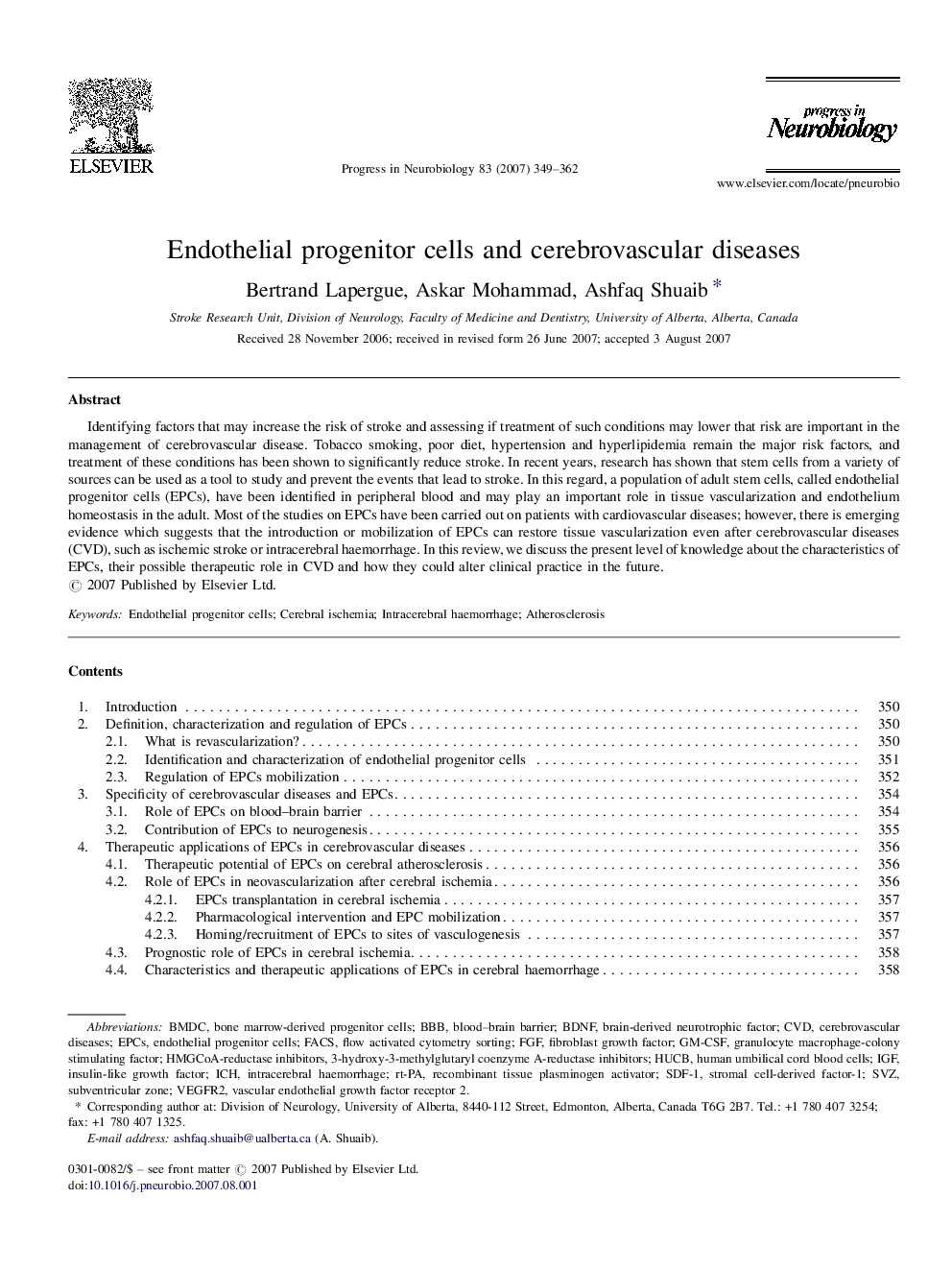| Article ID | Journal | Published Year | Pages | File Type |
|---|---|---|---|---|
| 4353767 | Progress in Neurobiology | 2007 | 14 Pages |
Identifying factors that may increase the risk of stroke and assessing if treatment of such conditions may lower that risk are important in the management of cerebrovascular disease. Tobacco smoking, poor diet, hypertension and hyperlipidemia remain the major risk factors, and treatment of these conditions has been shown to significantly reduce stroke. In recent years, research has shown that stem cells from a variety of sources can be used as a tool to study and prevent the events that lead to stroke. In this regard, a population of adult stem cells, called endothelial progenitor cells (EPCs), have been identified in peripheral blood and may play an important role in tissue vascularization and endothelium homeostasis in the adult. Most of the studies on EPCs have been carried out on patients with cardiovascular diseases; however, there is emerging evidence which suggests that the introduction or mobilization of EPCs can restore tissue vascularization even after cerebrovascular diseases (CVD), such as ischemic stroke or intracerebral haemorrhage. In this review, we discuss the present level of knowledge about the characteristics of EPCs, their possible therapeutic role in CVD and how they could alter clinical practice in the future.
